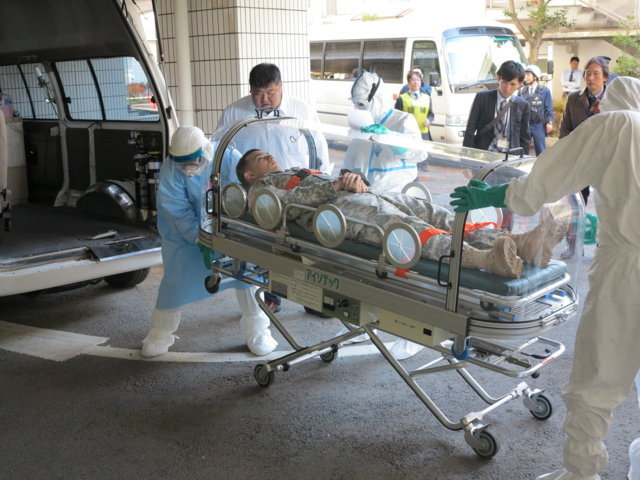By: Anita Makri
Send to a friend
The details you provide on this page will not be used to send unsolicited email, and will not be sold to a 3rd party. See privacy policy.
It may not be original but it’s usually worth the effort — that moment at the end of the year when you take time to look back and reflect, in this case about issues explored and views aired on SciDev.Net’s pages.
In this article, I take you through my top-five picks of the opinion pieces and special features that tackled globally relevant issues in 2015. The article selections reflect not readership figures but why they matter — the reason we commissioned them in the first place.
Five from special features
Taking things chronologically, the opinion article by Rosamund Southgate of Médecins Sans Frontières-UK is my first pick. It comes from our Spotlight collection, published at the height of the Ebola outbreak in West Africa that dominated headlines in the first months of the year. The collection probed the fearful reactions and social repercussions that emerged as significant factors in efforts to communicate during the crisis.
Southgate’s article is significant in three ways. First, it uses colourful examples of communication failures and innovations that give a real flavour of what happens on the ground. Second, it reflects the two aspects of communication covered in the Spotlight: conveying messages and coordinating between stakeholders, including anthropologists. Third, it ends with a vital message about managing crises: the need to find ways to share good practice and new learning quickly.
Next is an overview of integrating modern and traditional medicine, a feature by Andrea Rinaldi and Priya Shetty revamped this year with new facts, figures and case studies. This is a consistently popular feature on our site that has unique relevance to the developing world but is also a growing industry in the global North.
It takes readers through the tricky terrain of negotiating the promise and challenges of mixing the two traditions, navigating issues from R&D and medical testing to nature conservation and regulation. And if it all sounds somewhat abstract, an audio feature offers a concrete example by examining how a legal agreement with a small company has enabled the San and Khoi indigenous people of South Africa to benefit from modern uses of a local plant called buchu.
My third selection is a gallery of images by Ilan Kelman from islands across the Atlantic, Indian and South Pacific oceans, highlighted for its value in visualising some complex ideas about connections and tensions between climate change, development and natural disaster agendas. It comes from our Spotlight on climate change, which explored those ideas in some detail.
Finally, two articles about shelter, the topic of our last Spotlight this year. One is an overview piece by Monica Wolfe Murray, a thorough account of the sector with insights into good practice and the state of the knowledge of efforts to secure shelter after disaster and in cities. The topic has special resonance after any disaster, and particularly at this time, when conflict is forcing hundreds of thousands to flee their homes.From the same collection, I also chose an opinion article about 3D-printed housing by Anielle Guedes for the potential of this technology to be disruptive and hopeful. It promises to transform an entire industry, against a backdrop of the seemingly intractable challenge of building or rebuilding better homes.
Five from opinions
Among the stand-alone commentaries we publish on a regular basis, Nir Orion’s call to reform early science education so it taps into children’s learning instincts might seem far from this year’s major talking points. But it speaks to the fundamentals of valuing the natural environment and building scientific capacity in the developing world — and both are essential building blocks to any agenda related to socially responsible development.
One of these agendas is about using data to facilitate post-2015 development. Calls for a ‘data revolution’ have been hard to miss over the past couple of years. But an opinion by Shannon Kindornay offers a useful critical view of the flashy technological innovations that often dominate discussions around data. Instead, she argues in favour of the long and steady road towards better statistical infrastructure and capacity development.
An enduring challenge if ever there was one — as is the push to get science into policy. Arguments for this often border on the overzealous, and they are artfully challenged in an opinion by Erik Millstone. His complex and insightful counterargument puts the value of science in a broader perspective.
My last two selections reflect issues further from the media spotlight in science and development.
Mark Graham’s criticism of working conditions in the digital labour market reveals the darker side of the drive towards online technology work tied to knowledge economies. The article draws attention to the risks involved in a system Graham calls “a race to the bottom at a truly global scale”.
And last, but certainly not least, among my choices is Fredy Peccerelli’s sobering account of investigating human rights violations in post-conflict areas, and his call for sustained donor support for forensic science. Peccerelli describes a multidisciplinary process driven by evidence and anthropological work that testifies to the power of how science can serve human lives.
Watch out for more insights and challenging views as we greet the New Year.
Anita Makri is opinion and special features editor at SciDev.Net. @anita_makri














